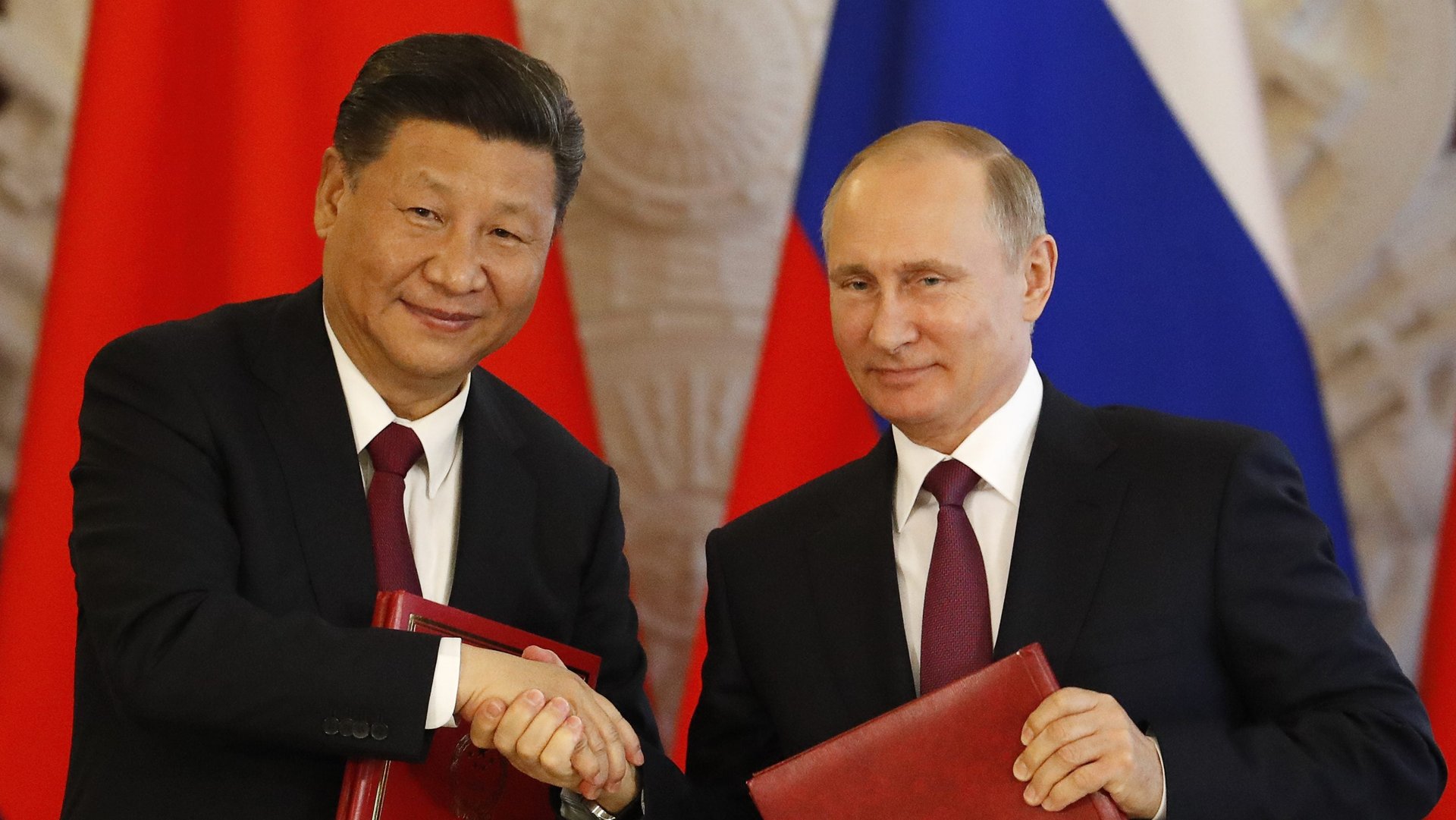Why China and Russia stand between the world and a North Korean missile attack
The world is relying on China and Russia to keep the peace after North Korea tested a missile capable of reaching Alaska on July 4.


The world is relying on China and Russia to keep the peace after North Korea tested a missile capable of reaching Alaska on July 4.
US president Donald Trump’s visible attempts at curtailing North Korea’s weapons experiments have mostly included tweeting insults at leader Kim Jong Un and berating China for continuing to trade with Pyongyang. The US State Department issued a strongly worded statement about the test. Further action seems unlikely: The job of the top US diplomat for the region—not yet filled yet by the Trump administration—is held by an “acting head.” The US military has sent warships to the region, but they haven’t been a deterrent for North Korea so far.
America’s hands are tied, political experts say. “We have demonized this country to a point where we have cut off diplomacy as an avenue to better relations,” said Ken E. Gause, director of the International Affairs Group, a defense think tank in Washington, D.C. Pressuring Kim with a broad threat of military actions has proven useless, he said.
Yes, there is plenty of saber-rattling about a US military strike on North Korea, but the likelihood of that actually happening is low, Gause said. “It would be insane,” Gause said. “You’d put Seoul in immediate peril.”
China and Russia, at least on the surface, have not abandoned diplomacy as a solution. In a joint statement after North Korea’s intercontinental ballistic missile (ICBM) test, the two countries made a proposal to North Korea, the US, and South Korea, suggesting the Kim regime declare “a moratorium on testing nuclear explosive devices and ballistic rocket launches, and the US and South Korea refrain from carrying out large-scale joint exercises.”
As North Korea’s top trading partner, China has the strongest hand here. Beijing could threaten to curb oil exports, or freeze wealthy North Koreans’ accounts in Chinese banks, among other measures. (Instead, trade between the two grew 37% in the first quarter, as Trump pointed out). Russia’s trade with North Korea, meanwhile, grew 73% in the first two months of the year, state news agency Sputnik reported. The European Union threatened further sanctions and asked North Korea to halt all of its weapons programs. (EU trade with the country is minimal).
Rather than heeding Russia and China’s call, the US and South Korea responded by test-firing missiles of their own, and issued a stark statement:
Self restraint, which is a choice, is all that separates armistice and war…As the combined live fire demonstrated, we may make resolute decisions any time, if the Alliance Commanders in Chief order. Whoever thinks differently is making a serious misjudgment.
The US’s ineffectiveness in North Korea isn’t solely a Trump administration problem. The Obama administration had a long-standing approach of “strategic patience,” which meant mostly sanctions and strong statements. It did nothing to deter North Korea from ramping up its weapons program.
“Trump has a transactional foreign policy,” Gause said. “He’s willing to go in any direction as long as it shows progress.”
A radically different approach toward that end, he said, would be to engage in diplomacy alongside China and Russia.